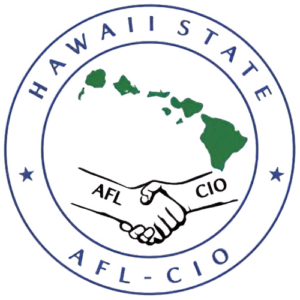About the documentary “Out at Work”
In 1992 Cheryl Summerville, a cook at a Cracker Barrel restaurant outside Atlanta, received a termination paper stating that she was fired for “failing to demonstrate normal heterosexual values.” She was shocked to discover that in most of the US it is legal to fire workers simply because of their sexual orientation. OUT AT WORK chronicles the stories of a cook, an auto worker and a librarian as they seek workplace safety, job security and benefits for LGBT workers.
Robert Hawk of the Sundance Film Festival noted: “Filled with humor, insight and moving fervor, OUT AT WORK offers a stirring experience for all of us.” Scott Sloan of the Shepherd Express said: “OUT AT WORK is a well-researched, well-made documentary about gay life in the workplace. Its informative look at “routine” discrimination and harassment – including and out-and-out threats against gay workers – is an eye-opener for those who thought that everybody knew better in the 90s.”
Panel discussion
Following the showing of the documentary, there will be a panel discussion including working people from the public and private sector, both union and non-union – followed by a group discussion. The panelists will share stories of their experiences – positive and negative – being out at work, and how they have coped, found allies, and made important changes in their workplaces and unions.
The Impact of Discrimination on LGBT workers
With the passage of legislation creating civil unions in Hawai‘i, and the signing of a law making employment discrimination on the basis of gender identity and expression illegal in the State, lesbian, gay, bisexual, and transgender (LGBT) workers in Hawai‘i have achieved important steps toward equality. However, LGBT working people continue to suffer the effects of homophobia and transphobia here and across the US. For example, a July 2011 study by the Williams Institute of the UCLA School of Law found:
- 27% of Lesbian, Gay and Bisexual (LGB) people had experienced at least one form of sexual orientation-based discrimination, 27% had experienced workplace harassment and 7% had lost a job;
- Among LGB people who are open about their sexual orientation in the workplace, 38% experienced at least one form of discrimination during the five years prior to being surveyed;
- Not surprisingly, more than one-third of LGB respondents to the survey reported that they were not out to anyone at work, and only 25% were out to all of their co-workers;
- Discrimination and fear of discrimination can have negative effects on LGBT employees in terms of wages, job opportunities, mental and physical health, productivity, and job satisfaction;
- Studies consistently show that gay men and lesbians earn significantly less than their heterosexual counterparts;
- Other studies show that discrimination, fear of discrimination, and concealing one’s LGBT identity can negatively impact the well-being of LGBT employees, including their mental and physical health, productivity in the workplace, and job satisfaction.
A major study of Transgender people published in February 2011 by the National Center for Transgender Equality and the National Gay and Lesbian Task Force showed disturbingly overwhelming levels of discrimination on the basis of gender identity and/or gender expression:
- Transgender survey respondents experienced unemployment at twice the rate of the general population, with rates for people of color up to four times the national unemployment rate;
- Ninety percent (90%) of those surveyed reported experiencing harassment, mistreatment or discrimination on the job or took actions like hiding who they are to avoid it;
- Forty-seven percent (47%) said they had experienced an adverse job outcome, such as being fired, not hired or denied a promotion because of being transgender or gender non-conforming;
- Over one-quarter (26%) reported that they had lost a job due to being transgender or gender non-conforming and 50% were harassed;
- Large majorities attempted to avoid discrimination by hiding their gender or gender transition (71%) or delaying their gender transition (57%);
- The vast majority (78%) of those who transitioned from one gender to the other reported that they felt more comfortable at work and their job performance improved, despite high levels of mistreatment.
Recent attacks on the most basic rights of workers to collectively bargain put at risk many gains LGBT workers have made through their union contracts, including domestic partnership health coverage and family leave, mandated anti-discrimination and anti-harassment policies, and transgender health care.
Please join us, and spread the word! Pupus and drinks will be provided.
FREE Event October 13 in Celebration of National Coming Out Day



